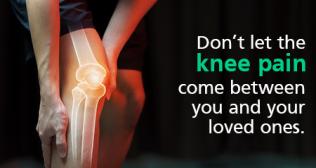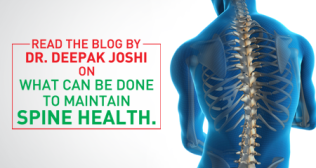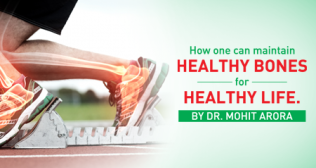
Arthroplasty vs. Joint Replacement: Differentiating Surgical Procedures
When chronic knee pain, hip pain/ other joint pain interferes with a person's ability to do routine tasks, as well as non-surgical techniques no longer work to relieve the pain, surgery may be the best choice. Not everyone wants to listen that they require surgery, but it may aid to know that joint replacement is one of the most innovative and successful surgeries in modern medicine. Whether an individual needs a hip replacement, knee replacement/ other joint replacement, the procedure can offer life-changing pain relief, restore person's joint function, and significantly improve person's quality of life. If one has heard the same thing about arthroplasty and one is curious about how the two procedures compare, one may be surprised by what they learn.
Is an Arthroplasty the Same Thing as a Joint Replacement?
Within the medical profession, plasty means "a surgical procedure for the repair, restoration, or replacement (as by a prosthesis) of a body part." Arthro, in turn, is Greek for joint. Together, these make up the word arthroplasty, which is the medical term describing joint replacement and repair procedures. It gets confusing, however, because joint replacement is utilised interchangeably with the term arthroplasty.
So, in short, yes, an arthroplasty is the same procedure as a joint replacement. It can be called replacement arthroplasty, joint replacement surgery, joint replacement, or even just arthroplasty—but as you'll see, they all mean the same thing.
Total joint arthroplasty is one of the most successful medical procedures available today. As technology and science continues to advance, these procedures are becoming less invasive and even safer and more effective. These days, most arthroplasty procedures are minimally invasive, which means that the incisions doctors use are smaller. This means patients recover faster with less pain and fewer complications.
Types of arthroplasties
Any large joint can be substituted with an arthroplasty, comprising:
- Hips.
- Knees.
- Shoulders.
- Ankles.
- Elbows.
- Wrists.
- Fingers.
- Toes.
Total joint replacement (total arthroplasty): During a complete joint replacement, person's surgeon will replace all the parts of their joint with a prosthetic joint.
Partial joint replacement (also known as partial arthroplasty): A partial joint replacement is just what it appears like. Person's surgeon will replace only few parts of their joint. Few healthcare providers sometimes refer to this as joint resurfacing.
What happens during an arthroplasty?
On the day of surgery, the patient will receive anaesthesia to numb their body and ensure they don't feel any pain. An anaesthesiologist will give the patient either general anaesthesia to put them to sleep during surgery or regional anaesthesia to numb the site around the joint that requires replacing. They may give the patient other medications to make them fall asleep if they need regional anaesthesia.
During a joint replacement, patient's surgeon will:
- Remove damaged cartilage as well as bone.
- Insert the prosthetic joint.
- Insert other prosthetic parts to recreate their natural tissue. They might utilise spacers to mimic natural cartilage, for instance.
- Reshape the bones around patient's joint to fit the new prosthetic (if they require to).
Robotic-assisted joint replacement
Few types of arthroplasties can be conducted as robotic-assisted joint replacements. This doesn't mean a robotic surgeon does the procedure automatically — it's a special technique to help person's surgeon. During a robotic-assisted arthroplasty, patient's surgeon will utilise a special computer that guides their surgical tools during the operation. Studies have found that robotic-assisted joint replacements can be more accurate and insert prosthetic implants more securely.
It's most common for surgeons to use robotic assistance to substitute bigger joints like hips and knees.
How long does an arthroplasty take?
Arthroplasties generally take a few hours from commencement to finish. It depends on which of patient's joints needs a replacement and if they're getting a total or partial joint replacement.
Benefits of arthroplasty
Arthroplasty refers to a safe, effective procedure that helps individual regain their mobility and relieves long-term pain. Most individuals who have a joint replacement have a raised quality of life because they can move better with less pain.
Complications of Arthroplasty
Few individuals who have joint replacement surgery still experience pain and other symptoms in their impacted joint. Rare complications comprise:
- Blood clots.
- Infection inside person's joint or at their surgery site.
- Nerve damage (comprising foot drop).
- Damage to blood vessels
- Issues with the prosthetic implant, comprising the device wearing down too soon or loosening.
- Scar tissue inside joint.
- Reduced range of motion and stiffness.
In a nutshell, Arthroplasty is surgery to substitute all or some of a joint. Patient's surgeon will replace worn-out or damaged bone and cartilage in their natural joint with a prosthetic implant. It generally takes at least a few months to recover after an arthroplasty. Patient's recovery time will depend on which joint needs a replacement
Popular Searches :
Hospitals: Cancer Hospital in Delhi | Best Heart Hospital in Delhi | Hospital in Amritsar | Hospital in Ludhiana | Hospitals in Mohali | Hospital in Faridabad | Hospitals in Gurgaon | Best Hospital in Jaipur | Hospitals in Greater Noida | Hospitals in Noida | Best Kidney Hospital in Kolkata | Best Hospital in Kolkata | Hospitals in Rajajinagar Bangalore | Hospitals in Richmond Road Bangalore | Hospitals in Nagarbhavi Bangalore | Hospital in Kalyan West | Hospitals in Mulund | Best Hospital in India | | Cardiology Hospital in India | Best Cancer Hospital in India | Best Cardiology Hospital in India | Best Oncology Hospital In India | Best Cancer Hospital in Delhi | Best Liver Transplant Hospital in India
Doctors: Dr. Rana Patir | Dr. Rajesh Benny | Dr. Rahul Bhargava | Dr. Jayant Arora | Dr. Anoop Misra | Dr. Manu Tiwari | Dr. Praveer Agarwal | Dr. Arup Ratan Dutta | Dr. Meenakshi Ahuja | Dr. Anoop Jhurani | Dr. Shivaji Basu | Dr. Subhash Jangid | Dr. Atul Mathur | Dr. Gurinder Bedi | Dr. Monika Wadhawan | Dr. Debasis Datta | Dr. Shrinivas Narayan | Dr. Praveen Gupta | Dr. Nitin Jha | Dr. Raghu Nagaraj | Dr. Ashok Seth | Dr. Sandeep Vaishya | Dr. Atul Mishra | Dr. Z S Meharwal | Dr. Ajay Bhalla | Dr. Atul Kumar Mittal | Dr. Arvind Kumar Khurana | Dr. Narayan Hulse | Dr. Samir Parikh | Dr. Amit Javed | Dr. Narayan Banerjee | Dr. Bimlesh Dhar Pandey | Dr. Arghya Chattopadhyay | Dr. G.R. Vijay Kumar | Dr Ashok Gupta | Dr. Gourdas Choudhuri | Dr. Sushrut Singh | Dr. N.C. Krishnamani | Dr. Atampreet Singh | Dr. Vivek Jawali | Dr. Sanjeev Gulati | Dr. Amite Pankaj Aggarwal | Dr. Ajay Kaul | Dr. Sunita Varma | Dr. Manoj Kumar Goel | Dr. R Muralidharan | Dr. Sushmita Roychowdhury | Dr. T.S. MAHANT | Dr. UDIPTA RAY | Dr. Aparna Jaswal | Dr. Ravul Jindal | Dr. Savyasachi Saxena | Dr. Ajay Kumar Kriplani | Dr. Nitesh Rohatgi | Dr. Anupam Jindal |
Specialties: Heart Lung Transplant | Orthopedic | Cardiology Interventional | Obstetrics & Gynaecology | Onco Radiation | Neurosurgery | Interventional Cardiology | Gastroenterologist in Jaipur | Neuro Physician | Gynecologist in Kolkata | Best Neurologist in India | Liver Transfer |



















